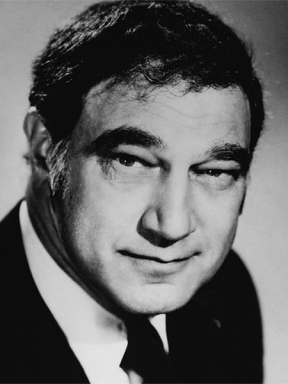Alan A. Armer was an American television writer and producer.
Armer served in the Army during World War II and was an announcer for Armed Forces Radio in India and Ceylon, now Sri Lanka. He earned a bachelor’s degree in speech and drama at Stanford University in 1947 and became an announcer at a radio station in San Jose.
He later returned to Los Angeles, where he worked at an advertising agency, an experience that provided an opportunity to write, direct, narrate and act in television commercials.
With colleague Walter Grauman, Armer developed Lights, Camera, Action, a live television talent show that aired on what was then known as KNBH Channel 4, the new NBC station in Hollywood, from 1949 to 1951.
He went on to produce 20th Century Fox’s first TV series, My Friend Flicka, which ran from 1955-58, as well as Broken Arrow and Man Without a Gun, also for Fox.
In addition, he produced the gangster drama The Untouchables.
Armer produced 90 episodes of The Fugitive, one of numerous series from executive producer Quinn Martin. The show aired on ABC from 1963-67 and starred David Janssen as a doctor on the run to avoid prosecution for a murder he did not commit. Armer won his Emmy when the series was named best drama in 1966.
Armer also produced three other Quinn Martin series of the era: The Invaders, Lancer and Cannon.
In the 1970s, Armer produced a number of made-for-television movies. In the same decade, he began teaching in the film and television department at California State University, Northridge. He eventually became a full professor. When he retired in 2000, he donated $1 million to the school for the construction of a 130-seat screening room, now called the Alan and Elaine Armer Theater.
Armer, who earned a master's degree in theater arts at UCLA in 1982, wrote three books, including Directing Television and Film and Writing the Screenplay: TV and Film.
In addition to his lengthy television career, which spanned more than three decades, Armer was active in the Television Academy, which he served as president of the Hollywood chapter of the National Academy of Television Arts & Sciences in the 1970s, during the tenure of Robert Lewine as president of the organization as a whole.
Armer died December 5, 2010, in Los Angeles, California. He was 88.




